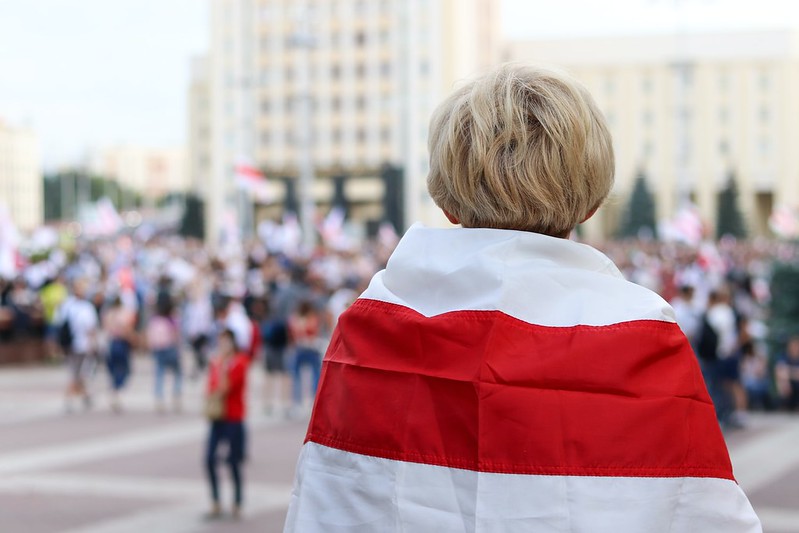In a move eerily similar to Russia’s 2020 constitutional referendum, which granted Vladimir Putin two additional six-year terms, Belarusian dictator Alexander Lukashenka is attempting to extend his reign with a vote under false pretenses to further consolidate his power. Lukashenka’s proposed constitutional amendments enable him to remain in power until 2035 and protect him from prosecution for corrupt and criminal actions taken while in office. Additionally, should the new constitution pass, it would establish the All-Belarusian People’s Assembly, a body made up of unelected regime loyalists, which would shape Belarus’ foreign and domestic policy by declaring martial law and appointing judges, among other things.
One of the most concerning changes proposed is the removal of Belarus’ obligation to remain neutral and free of nuclear weapons. The removal of these provisions could establish the legal mandate for a permanent Russian military presence in Belarus, among other developments, threatening to institutionalize Russia’s persistent crisis escalation around Ukraine.
With more than 1,000 political prisoners behind bars and many democratic leaders forced into exile, it is increasingly difficult to organize opposition to the vote through mass action. Despite the challenging situation, a coalition of Belarusian democratic and NGO leaders including Sviatlana Tsikhanouskaya, Pavel Latushko, and the Coordination Council are calling on Belarusian citizens to unite and invalidate ballots—by marking all available options—to ensure Belarusians voice their opposition and do not allow Lukashenka to secure an unopposed victory.
In a bid to intimidate voters, Belarus’ Central Election Commission (CEC) is removing curtains from voting booths and dispatching not only police but “volunteer brigades” to monitor polling stations. While the CEC cited “the risks associated with the spread of coronavirus infection,” the removal of voting booth curtains is a transparent attempt to undermine parallel vote tabulation efforts through the “Golos” platform, which relied on phone cameras to count ballots in the 2020 election, demonstrating Sviatlana Tsikhanouskaya had possibly defeated Lukashenka.
The democratic opposition notes the new amendments do not answer the demands of citizens for change. To that end, Anatol Liabedzka, Representative for Constitutional Reform and Parliamentary Cooperation for the Office of Sviatlana Tsikhanouskaya, and other experts, are developing an alternative democratic constitution. Unlike Lukashenka’s proposed constitutional amendments, this alternative constitution has been developed openly and aligns with the norms of a modern democratic constitution, such as the establishment of clear constitutional checks on executive power. The draft has already received positive feedback from constitutional experts—including IRI Senior Director for Eurasia and constitutional law expert, Stephen Nix—and is seeking review by the Venice Commission. Not under consideration in the referendum, this alternative constitutional draft nonetheless provides insights into the possibilities of a democratic Belarus.
The first national vote since the August 2020 presidential election and subsequent democratic protest movement, the referendum is ostensibly a vote on new legal amendments—the reality is that the February 27 referendum will be a ballot test on an increasingly brutal regime. Given the severe repression of opposition groups and the lack of transparency in the CEC, the referendum results are predetermined. Regardless, it presents an important opportunity for the democratic opposition to reenergize supporters and remind Lukashenka that most Belarusians do not support the regime but rather prefer an alternative vision of the country in which leaders take their voices into consideration. Through the continued efforts of the democratic opposition and support from non-governmental organizations there is hope that this vision for a democratic Belarus will be one day be realized.
Top